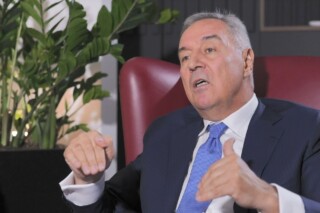In her analysis, she says that the EU’s enlargement policy has turned in recent years from the most successful into the weakest and least perspective community policy, but adds that Montenegro represents a positive example in the negotiation process.
“The country started the negotiations process officially in 2012. On 18 December 2013 Montenegro opened the first chapters under the new negotiations system – starting from the Chapters, which are difficult to the region – 23 Judiciary and fundamental rights and 24 Justice, freedom and security”, Marini says in the article EU Enlargement Is Going the Route of “Titanic”.
She adds that 22 chapters have been opened since then, with two of them provisionally closed (because negotiations do not end until the accession treaty is signed).
“In this sense, purely empirically, against the backdrop of all the others that are currently negotiating, Montenegro truly is a frontrunner, for it has opened the most chapters to date and not a single one is blocked for some reason – unresolved bilateral disputes with a member state, cultural-religious differences, or something else”, the author says.
However, she reminds on the recent statement of the Commissioner for Enlargement Negotiations Johannes Hahn, who noted that real progress on the ground in the rule of law remains limited, including in establishing a track record in the fight against corruption and organised crime. Besides failing to deal with these serious problems, the author notes that Montenegro is being also torn apart by a severe political crisis, which includes a substantial geopolitical element.
“The situation worsened considerably when Montenegro received an official invitation to join NATO. At that point the pro-Russian parties in the country began organising mass street protests, demanding the resignation of PM Milo Djukanovic, who was accused of corruption and authoritarianism”, Marini says.
However, she concludes that the EU is happy to have a partner such as Montenegro, which imposed sanctions against Russia, thus accepting the EU foreign policy.
“High Representative of the European Union for Foreign Affairs and Security Policy Federica Mogherini thanked very directly for the fact that Podgorica has aligned with the EU’s foreign policy positions. She thinks that Montenegro’s NATO membership will further enhance stability in the region”, the article’s author concluded.




